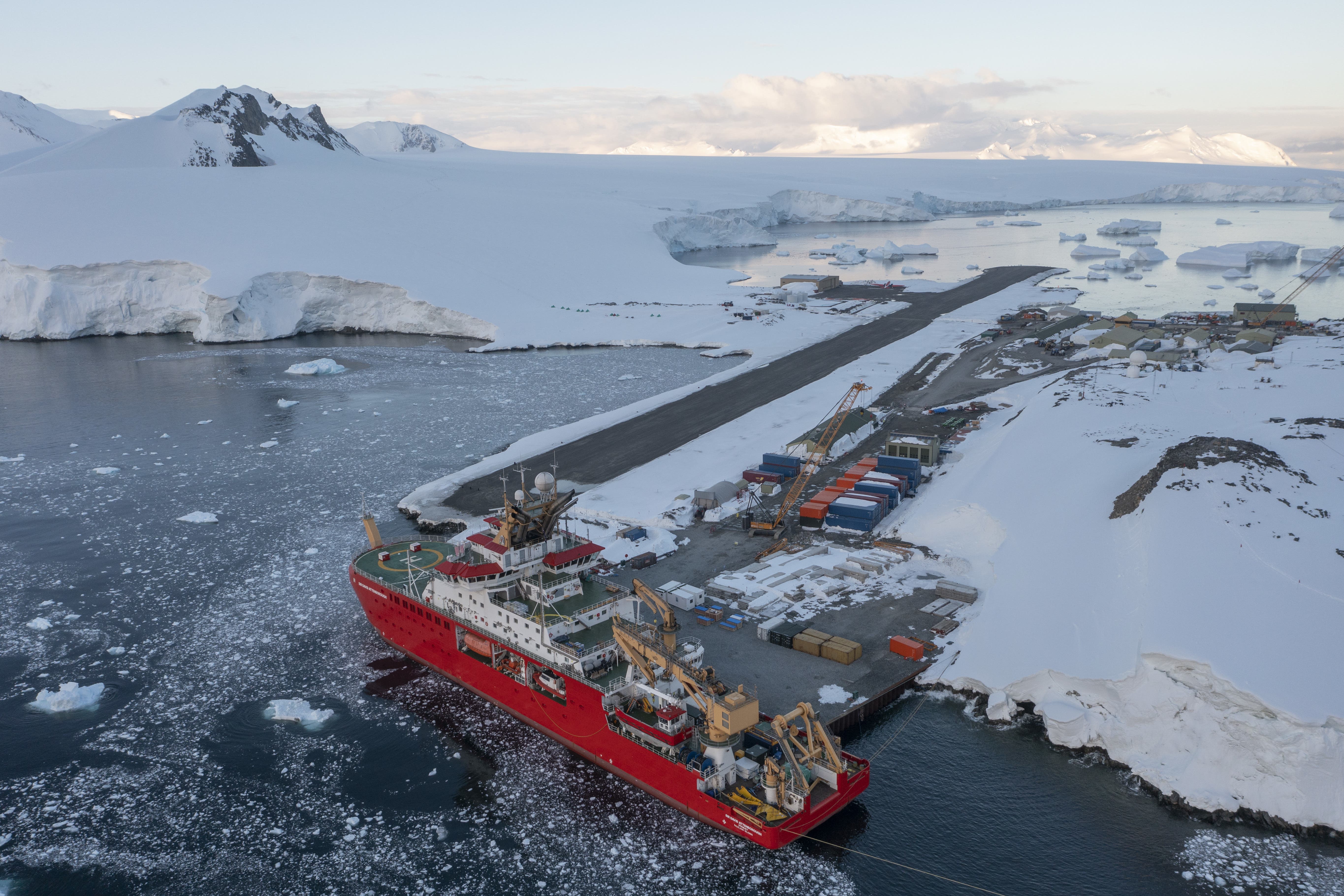Polar research ship sets sail to study impacts of climate change on Antarctica
The £200 million polar research ship will arrive by Christmas.

The research ship RRS Sir David Attenborough has set sail for a six-month deployment to Antarctica to examine the threat of future sea-level rises and dangers for marine biodiversity.
The £200 million polar research ship, which has a 30-strong crew with up to 60 scientists and support staff onboard, left its home port of Harwich in Essex on Sunday.
After visiting Portsmouth, Hampshire, to pick up fuel, it is set to arrive at Rothera Research Station, on the Antarctic peninsula by Christmas.
Ahead of its departure, Professor Dame Jane Francis, director of British Antarctic Survey, which operates the ship, said that scientists were investigating tipping points “where the earth goes into irreversible change” such as the west Antarctic ice sheet.
She said: “If that ice sheet does melt, it holds about three to five metres of global sea level rise, so what happens in Antarctica won’t just stay in Antarctica, it will affect us all.”
She added: “Global sea level is rising quite consistently now, it’s about 3mm to 4mm per year, which doesn’t sound much but that will inundate quite a lot of coastlines around the world.”
Prof Francis continued: “What we really need to do and what I hope comes out of this next voyage is to really understand more about how climate change is affecting Antarctica.”
The ship will use an artificial intelligence system that will recommend the fastest and most fuel-efficient routes between locations, taking into account sea ice, ocean dynamics and weather.
An online poll had suggested that the ship be called Boaty McBoatface, but one of its robotic submarines was given the title instead.
Prof Francis said: “It did bring attention to the ship… but I think the decision to call it Sir David Attenborough was absolutely perfect and it’s a great honour to have a ship with his name on it.”
Bookmark popover
Removed from bookmarks